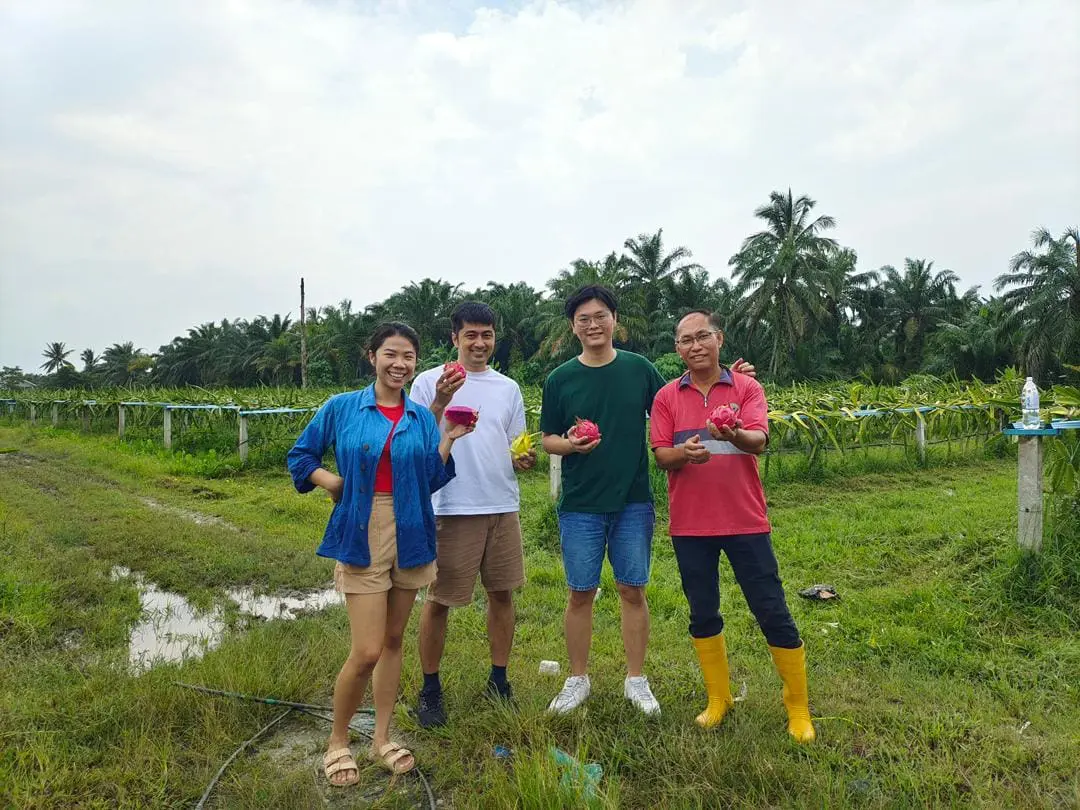Exclusive Story by WeirdKaya - Proper accreditation to WeirdKaya and consent from the interviewee are required.
Dexter Sia is a computer science student who helps with website design and discovered a growing need for traditional businesses to embrace digital transformation.
While his career began with creating websites, he quickly realized that many well-established, generational companies were struggling to adapt to the digital age.
Driven by a unique passion, Dexter is now dedicated to helping these businesses modernize while preserving their legacy—whether it’s passed down within the family or to a successor outside of it.

Follow where life leads
Dexter grew up in Banting and was sent by his family to attend Chung Hua High School, where they encouraged him to develop independence.
Where he developed a strong interest in organising and managing events. As such, he was deeply involved in various committees, including those for his hostel community and graduation.
His passion for these activities often led him to prioritize planning and leadership roles over his studies, which caused his grades to suffer and disrupted his original plan to study abroad.

Consequently, he remained in Malaysia and eventually pursued a degree in computer science at INTI.
When asked to describe himself an an individual, Dexter said he was one who “embraces the present moment and opts to go with the flow rather than rigidly chasing after plans.”
You never know what life will throw at you. Instead of trying so hard to control and manage it, why not embrace it and make the most of what comes your way?”
During his time at university, Dexter was constantly seeking out experiences beyond the classroom. In 2020, he took on freelance website-building projects, using them as opportunities to gain practical knowledge.

As his work progressed, clients began seeking more than just aesthetically pleasing websites—they needed meaningful business growth.
That’s when Dexter realized that these businesses needed more than just a website—they required deeper insights into business and marketing strategies.
Challenges for traditional business
In 2021, Dexter took a leap and started his own Website designing company, Quintagen Solutions. From there, his workload quickly expanded as he began attracting a wider range of clients, including those from his parents’ network, both traditional and well-established businesses.
Initially, he focused on creating simple websites for traditional businesses. However, he quickly realized that launching a website alone wasn’t enough to address their deeper challenges.

Many of these businesses were in dire need of a complete shift in mindset to thrive in the digital era.
In conversations with various business owners, Dexter witnessed the legacies they had built and their unwavering efforts to preserve them.
He saw the wisdom and resilience they displayed in overcoming countless challenges—only to now face their greatest hurdle in the digital and internet era.
“They were innovators and pioneers in their respective fields and eras, having endured significant challenges to build their companies alongside trusted partners and staff. However, the rapid changes in the digital world now pose a substantial threat and challenge to them.”

Driven by this insight, Dexter transitioned to working full-time, connecting with traditional companies that needed a guiding hand to transform.
He expanded his skill set to include digital marketing and operational consulting, helping these businesses not only with digital marketing strategies but also with automation to streamline their day-to-day operations.
With a blend of technical expertise and a commitment to preserving these companies’ legacies, Dexter strives to help traditional businesses adapt and thrive in an increasingly digital world.

Conflict between generations
Among the clients he worked with was a longstanding family-run business., where the owner, an elderly businessman, had built the company from the ground up using old-school methods.
Initially resistant to any form of automation, he managed invoices and receipts manually, which burdened the staff with paperwork.

Meanwhile, sales experienced a decline as other competitive businesses entered the industry, all equipped with the latest digital technology and marketing strategies.
His son, on the other hand, was eager to introduce new ideas and digital processes but faced a wall in the form of his father’s reluctance to change, which inevitably led to ongoing clashes between the two of them.
Dexter witnessed their conflict firsthand during their first meeting, where father and son ended up shouting at each other.
It was clear to Dexter that a careful balancing act was needed to bridge the generational divide.
Building bridge between generation
To convince the father and son to work together, Dexter decided to talk to them separately. For the former, he dove waist-deep into research, studying case studies of traditional businesses that had successfully transitioned to digital operations to show.
I spoke with the business owner with humility, showing him the current business trends and how they significantly benefit industries across the board. Convincing him that’s why digitalisation has become inevitable.
“To ease the transition, I proposed a gradual approach—introducing partial digitalisation to showcase the benefits while preserving key elements of the traditional system rather than pushing for a complete overhaul,” he explained.
As for the son, Dexter had to teach him about the importance of respecting traditional methods.
“Even if certain methods seem outdated, they were built for a reason and serve specific purposes. Innovation should build upon the foundation laid by the previous generation, not to be disregarded entirely.”
The young man was initially reluctant to compromise, so Dexter negotiated with the father to assign his son a specific role that allowed him to work hands-on in the business.
After being tasked with a role and getting a glimpse of the challenges of running a company, the son quickly grasped its complexities and developed a greater respect for the process.
This opportunity would reveal to the son the complexities of executing plans, fostering mutual respect between the two generations while allowing the young man to explore his own approach.”
In the end, Dexter acknowledged that he could never fully resolve all of their problems. Instead, he focused on providing insights, hoping they could find their own way forward.
“Now that digital transformation has been introduced and his successor has the opportunity to execute his plan, I can only believe that with the business owner’s experience, they can make it work.”
Balancing tradition and progress
For Dexter, modernising a business is not just about adopting new technology—it’s about honoring the wisdom behind traditional practices.
Many old businesses are built on values like dedication, trust, and resilience, which he believes must be preserved as the foundation for future growth.
His guiding philosophy is to pass down not just assets but the essence and identity of a business, ensuring that its core values remain intact and continue to shape its future growth.
“Tradition isn’t a barrier—it’s a foundation,” he explains. “When you combine it with new ideas, that’s where real progress happens.”

For Dexter, transformation isn’t about abandoning the past but building on it. By balancing tradition with innovation, businesses can retain their identity while adapting to modern needs.
His mission is to ensure these companies thrive by evolving with respect, ensuring that both legacy and progress go hand in hand toward a sustainable future.
Exclusive Story by WeirdKaya – If you wish to reproduce this story, please ensure that you obtain consent from the interviewee to maintain factual accuracy and avoid the potential spread of misleading information.
If referencing or using any information from our story, we kindly ask that proper credit is given, along with a backlink to WeirdKaya, as acknowledgment of the efforts made by our editors in sourcing and conducting interviews.



